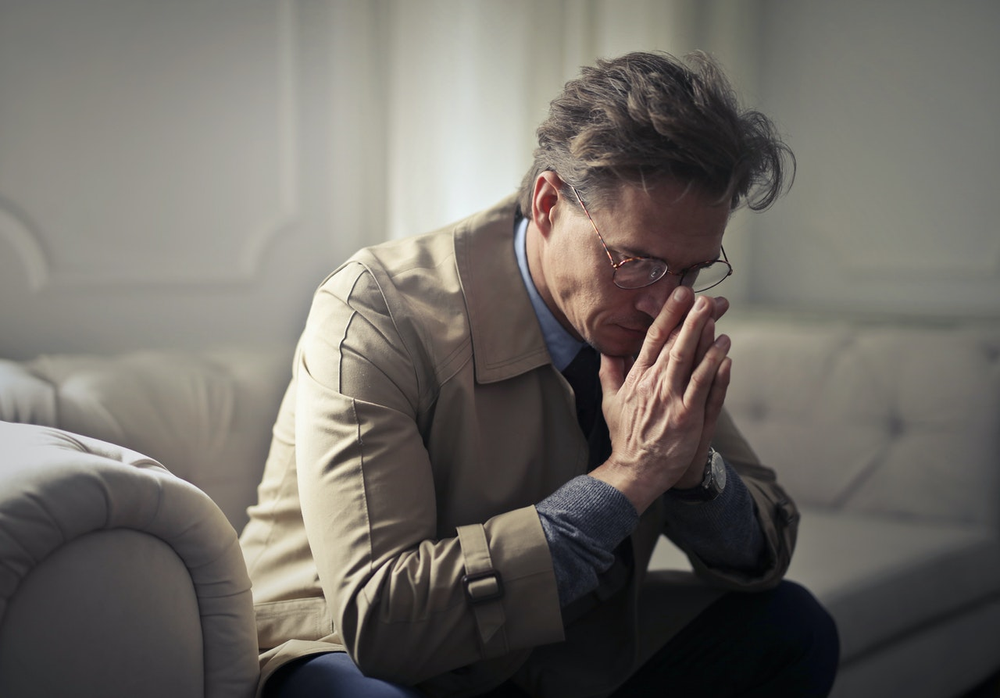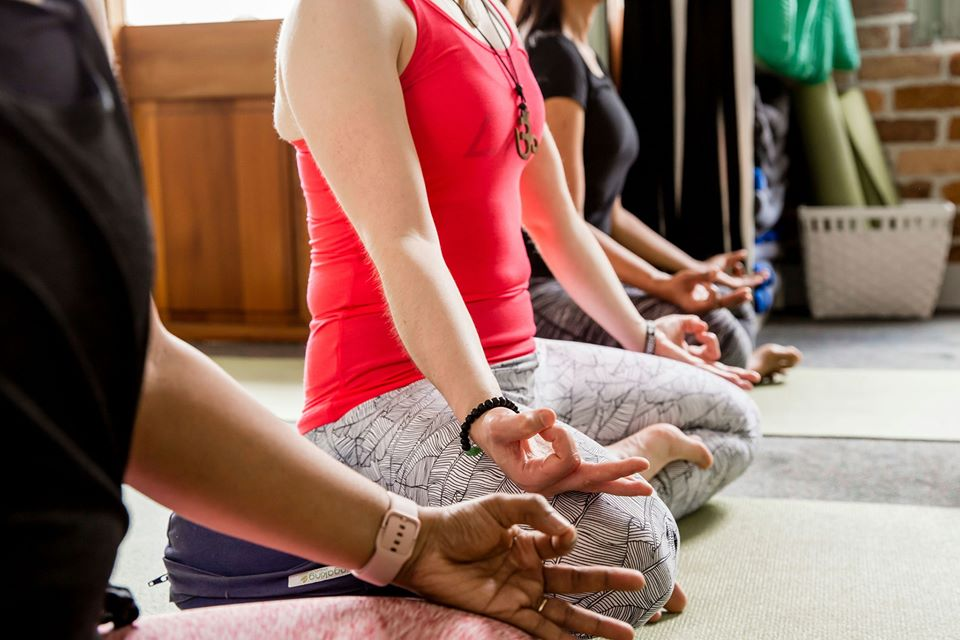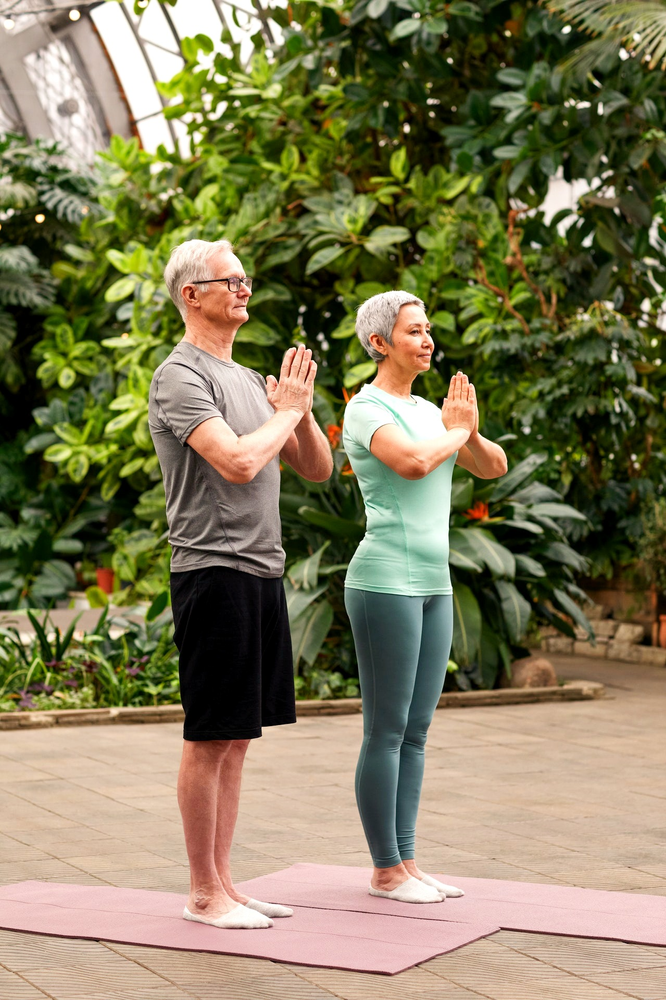
Awareness of the Signs
You don’t have to be in a scary situation to have a panic attack. You could be going about your everyday stuff or asleep in bed. Suddenly you get a strong surge of fear. This switches on the flight / fight reaction in the body. You may feel physical symptoms of panic like a pounding heart, sweating, shortness of breath, nausea, chest pain, or trembling. It can last 5 to 20 minutes. Once you become aware of the onset of an attack, you can find ways to stop it. You may also benefit from Stress Management
Continue with your Life
It’s understandable that you would prefer not have a panic attack at all. But it’s important not to let fear control your life. For example, don’t avoid places where you’ve had panic attacks in the past. If you have one, stay where you are, if it’s safe. When the attack is over, you’ll realize that nothing terrible happened.
Self-Talk
When you feel a panic attack coming on, remind yourself that you are feeling anxiety, and not in danger. You can even try directly addressing the fear. Practice affirmations like:
- I am not afraid
- This will pass
- I am calm and relaxed
- I am in control
Learn How to Use Positive Affirmations
Breathe Into It
An attack may make you take quick, shallow breaths, this may cause hyperventilation to occur. This is where your blood oxygen levels increase, and your carbon dioxide levels decrease. This may cause dizziness adding to the panicky feeling. You need to get your breathing under control. Close your eyes. Inhale and exhale through your nose slowly and deeply. Breathe in for the count of 5 seconds, using your belly, then out for 5. After a few minutes, you should start to feel better.
I also have a whole bag full of breathing exercises which could help you with your concern.

An Awareness Exercise
Notice 5 things you can see around you. Then, 4 things you can touch. 3 things you can hear. 2 things you smell, and 1 thing you can taste. Focusing on your environment will stop the mind from being preoccupied with worry.
H.A.L.T. Your Attack
H.A.L.T. stands for: hungry, angry, lonely, tired.
These are feelings that bring out the worst in folks. If you’re prone to panic attacks, they can turn into triggers. When symptoms pop up, ask yourself:
- Am I hungry?
- Am I angry?
- Am I lonely?
- Am I tired?
Once you pinpoint what’s going on, you can take steps to fix it.

Relaaaaaaxxxxxx!!!!!
When you feel a panic attack coming on you can use a useful relaxation technique. These involve slow breathing and progressing through the body part by part relaxing as you go. I have passive and active relaxation exercises which could help you with your concern.
What If?
Panic attacks feed on thoughts of:
- What if I can’t do it?
- What if I fail?
- What if she / he does not like me?
- What if I run into my ex?
- What if everyone laughs at me?
Acknowledge that fear, then shift from “what if?” to “so what” 90% of the time things do not turn out as bad as we think anyway.
Rate Your Fear
When fear scrambles your mind, rate it on a scale of 1 to 10 every few minutes. This keeps you in the present moment. It’s also a good reminder that you’re not on a 10 the whole time. I use this often when I am rock climbing. When I get into a situation which I risk falling, I say to myself, that my belayer will catch me if I fall. Then I say what is the likelihood of me being injured or dying? And it is never more than a 3. Feel free to read Generalised Anxiety Disorder (GAD) , Understanding Depression & the Road to Recovery , Acute & Post Traumatic Stress Disorder , Obsessive Compulsive Disorder , Suicide Prevention Panic Disorder & Agoraphobia
Go easy with stimulants
Caffeine can make you feel nervous and shaky. It may also keep you awake at night, which could lead to exhaustion later. Nicotine, alcohol, and other substances can make you feel calm at first but have adverse effects on the body and mind later. All can trigger panic attacks or make them worse. It’s best to avoid them or limit their usage. Learn about Alcohol and Aggression

Pump it Up
Physical activity lowers built up stress, which is one of the main causes of panic attacks. A workout, especially the kind that gets your heart pumping, can also get you to a calmer place after the strenuous activity. Or do some resistance training. Even a 10-minute walk can help. Maybe read Breath and Ice Therapy

Slow Down
Slow your body down, and your mind will follow. Practices like yoga and Qi Gong use slow body movements and train the mind to be calm and aware. You can also learn to meditate. Learn about The Power of Meditation
I have various meditation exercises which incorporate Qi Gong principles. These could help you with your concern.
All these suggestions may work. Try one a couple of times, then the other. See what works for you.
Take Action Now
For more in depth techniques then make an appointment or a free 15 minute chat:
CALL NOW: 0405 391 110 or fill out the contact form here: https://apspear.com.au/contact/
Check out my social pages:
https://www.facebook.com/MMEI01 or https://www.linkedin.com/in/adrian-p-spear/


